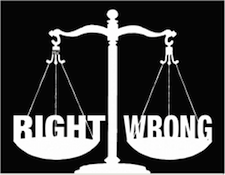It’s the time of year for saving money!
Over the last few months I’ve had a pretty busy travel schedule – both for business and fun. As is my custom, I enjoy leaving time to visit a high-end audio dealer if one is located in the general vicinity of where I happen to be. I always try to limit myself to a dealer with a physical, commercial, brick and mortar store and not a home based dealer. My reasoning is that I’m not as likely to be wasting the time of a dealer with a commercial address as opposed to one operating from their home. Most home based dealers work on appointments and most commercial outlets wait for customers to show up. Me wandering in off the street to a commercial business is not so problematic. I’ve even made a few purchases from a couple dealers I’ve visited.
 When I asked how business was doing, I surprisingly found myself, on numerous occasions, involved in a discussion of the industry in general, and specifically what problems and issues dealers face. I decided to conduct an informal study that looked into the problems dealers encounter and from their point of view.
When I asked how business was doing, I surprisingly found myself, on numerous occasions, involved in a discussion of the industry in general, and specifically what problems and issues dealers face. I decided to conduct an informal study that looked into the problems dealers encounter and from their point of view.
Uniformly, the most pervasive complaint dealers conveyed to me was the consumer who visits their store, spends time looking at, listening to and discussing equipment, then buys online, whether new or used. They consistently told me that because such a customer can’t hear the equipment for sale on a web site, they use a dealer for their dirty work but ultimately shun them for the reward–new business.
One dealer told me about a customer who made several visits to his shop listening to and discussing a set of speakers. The dealer was very accommodating and worked with the customer, answering questions and concerns, even setting up other speakers for comparison purposes.
Eventually, when the demo process had run its course and decision time had arrived, the customer asked to think about it over the weekend. So the following midweek, the dealer called the customer to inquire as to his decision. Imagine the dealer’s complete surprise when he discovered that the customer bought a used set of speakers off the Internet and never intended to buy from him in the first place. To say the dealer was outraged is an understatement.
But the story doesn’t end there.
 A couple weeks later the dealer gets a call from the customer. It seems the speakers arrived with one tweeter blown. Despite the customer’s best effort to recoup the purchase cost from the seller, who not surprisingly, categorically, stated both speakers were in perfect working order when shipped, the customer was now asking the dealer to contact the manufacturer to repair the speaker.
A couple weeks later the dealer gets a call from the customer. It seems the speakers arrived with one tweeter blown. Despite the customer’s best effort to recoup the purchase cost from the seller, who not surprisingly, categorically, stated both speakers were in perfect working order when shipped, the customer was now asking the dealer to contact the manufacturer to repair the speaker.
Do you think this whole scenario is ethically challenged? Ultimately, the dealer agreed to contact the manufacturer. He informed the customer that he would be paying full retail cost for all repairs, plus shipping charges, plus any additional charges the dealer incurred, and advanced, certified payment would be required. No exceptions. He also told the customer that once the speaker was repaired, he didn’t want any further business from him and that he would refuse to sell him in the future. On the one hand that’s a “bravo” move – on the other, a head in the sand viewpoint. Were it me in the dealer’s role I’d have told the customer to go pound sand. In doing so, would I be jeopardizing future business opportunities or having moral conviction?
Let’s face it; we’ve probably all done something like this ourselves. Not long ago, I was looking to buy a new cordless hammer drill for some weekend projects. Normally, I’d just go the home center and pick one up. Because of the cost, I decided to also shop online. I found one I really liked, and was attractively priced, but well… power tools need a “certain feel” to them – quite impossible to determine when shopping online. I discovered that the local home center also sold the hammer drill. You guessed it – I didn’t do anything but drive to the store, check out the drill, return home and place the online order. How exactly am I any different than the example cited above?
 Well, for one the local home center is a way, whole lot larger than the average audio dealer and has huge sales dollars. They also have the benefit of a large volume of people coming into the store with a significant percentage of them buying. So the look and shop elsewhere is not as damaging to them as it might be to an audio dealer selling expensive equipment. I also did the evaluations myself; I didn’t take an employee’s time by asking questions about a product I knew I would be buying elsewhere. Then again, those conditions don’t especially make it right.
Well, for one the local home center is a way, whole lot larger than the average audio dealer and has huge sales dollars. They also have the benefit of a large volume of people coming into the store with a significant percentage of them buying. So the look and shop elsewhere is not as damaging to them as it might be to an audio dealer selling expensive equipment. I also did the evaluations myself; I didn’t take an employee’s time by asking questions about a product I knew I would be buying elsewhere. Then again, those conditions don’t especially make it right.
Truth is, there is no obligation, implied or otherwise, that requires a consumer to do business with anyone for any reason. Maybe the guy started out intending to buy from the dealer but changed his mind. Maybe the dealer wanted too high a price. Maybe the customer couldn’t afford the new speakers and had a budget that only allowed a used purchase. I suspect that if the customer had been honest with the dealer in the beginning, the dealer would have been willing to work with the guy. I mean, that’s just good business– to a point. We’re essentially left with the essential question- is it right?
As consumers, we are always burdened with the decision to be ethical while at the same time looking for thrift and economy in our purchases. We sometimes find ourselves in the unenviable position of the desire to do the right thing standing in stark opposition to saving money. Making the tough decision doesn’t always serve both masters. So if ethics and thrift are mutually exclusive, which one do we choose? More importantly, are they necessarily mutually exclusive?





